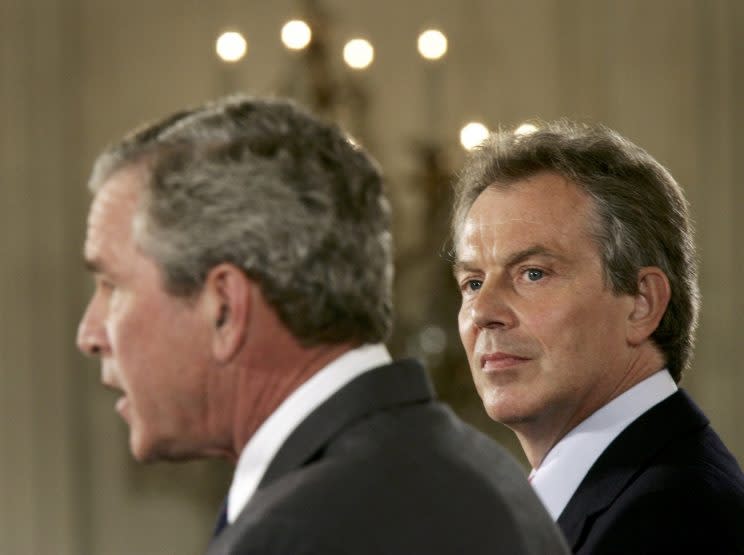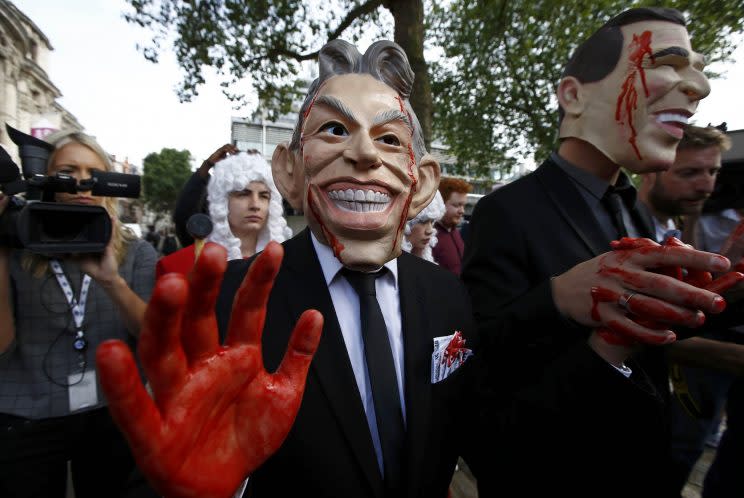‘I will be with you, whatever’: Blair sent memo backing Bush’s Iraq War plan, Chilcot report reveals

Eight months before the U.S.-led invasion of Iraq, British Prime Minister Tony Blair sent a note to President George W. Bush pledging his support for the war.
“I will be with you, whatever,” Blair wrote in the July 28, 2002, memo that was published Wednesday as part of a long-awaited report by the U.K. Iraq Inquiry Committee, led by Sir John Chilcot.
The exhaustive inquiry, a 2.6 million-word report seven years in the making, concluded that U.K. leaders “chose to join the invasion of Iraq before the peaceful options for disarmament were exhausted.” It also concluded that Blair backed Bush despite there being “no imminent threat from Saddam Hussein” and no concrete evidence Hussein had weapons of mass destruction to justify going to war.
“It is now clear that policy on Iraq was made on the basis of flawed intelligence and assessments,” Chilcot said at a press conference announcing the report’s release. “They were not challenged, and they should have been.”
By the time most British troops had withdrawn from Iraq in 2009, 179 British had lost their lives.
"I will be with you, whatever"
Tony Blair's confidential Iraq memo to George W Bush https://t.co/lOjx5zrKSA (1/3) pic.twitter.com/plUrto92Q3— BBC Breaking News (@BBCBreaking) July 6, 2016
The report, while damning, did not issue a recommendation over the legality of the U.K. military’s involvement in the Iraq War — a point Blair highlighted in his response.
“The report should lay to rest allegations of bad faith, lies or deceit,” Blair said in a statement. “Whether people agree or disagree with my decision to take military action against Saddam Hussein; I took it in good faith and in what I believed to be the best interests of the country.”
He said he took “full responsibility for any mistakes, without exception or excuse,” but added, “I believe that it was better to remove Saddam Hussein.”
“However, the report does make real and material criticisms of preparation, planning, process and of the relationship with the United States,” Blair said. “These are serious criticisms and they require serious answers.”
The former prime minister addressed some of those criticisms later Wednesday.
“The intelligence was wrong,” Blair said. “I express more sorrow, regret and apology than you may ever know.”
Outside the conference center where the inquiry was published, more than 100 anti-war protesters lined up to demonstrate Wednesday afternoon. “Blair lied, thousands died,” some shouted, while others carried signs labeling Blair a “war criminal.”
Slideshow: The Chilcot report on Britain’s role in the Iraq war >>>



